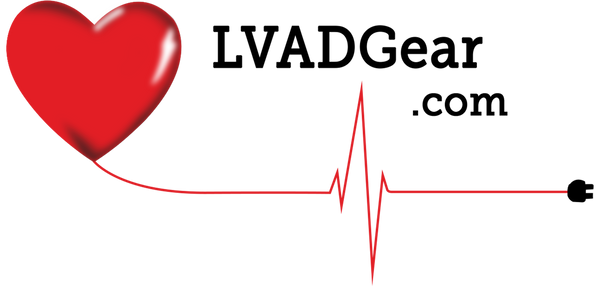
Can Headaches Be Caused by Heart Problems? Find Out Now
A headache is something that you experience often and usually don’t take very seriously. Well, it is true, it may happen for a number of reasons that might not be so concerning, including a dull pain after a busy day or a sharp pain coming out of nowhere. But, what if the episodes of headaches increase more often, and you don’t even know the reason?
You may find it surprising that there is a link between episodes of headaches and heart problems. But yes, a headache can be a symptom of the condition when the blood supply to the heart becomes compromised. Many studies have concluded that there is a potential link between migraine and cardiovascular diseases.
The type of headache that is associated with heart problems is usually known as Cardiac Cephalgia. However, your doctor will only diagnose this condition, only after a complete assessment and the nature of your symptoms. Let’s find out how exactly your heart can be the reason behind your headache with this guide.
What Is a Heart-Related Headache?
A headache related to the heart can be different from the one you might be used to. Where those usual headaches may occur due to dehydration or light sensitivity, this type of headache, also known as cardiac Cephalgia, occurs when your heart is not getting enough blood. In such cases, the pain shows up in your head along with your chest.
If you are experiencing migraine episodes more often, then you should know about this. According to recent literature, migraine can increase the risk of developing a heart problem. However, it may need to be studied closely and needs further research.
Cardiac Cephalgia is different from other headaches because it only occurs when the muscles of the heart do not get enough blood supply. The headache can be moderate to severe in intensity, but this usually depends on how serious the underlying condition is. Unlike migraines, this headache is not typically triggered by bright light and noise. The pain often disappears once the blood flow to your heart improves or after you take medication to treat the underlying problem.
Don’t you think it is fascinating and shocking at the same time to know how connected everything is in our bodies? It’s a normal response because we can hardly connect chest ache and headache.
What are the causes of headaches in Heart Problems?
You might be wondering how my headache is linked to a heart problem. But there is an obvious reason behind it – a reduced cardiac output. If we say this in simple terms, it means if your heart is not pumping blood efficiently as it should, then it reduces the circulation of blood throughout your body, including the brain.
The other reason can be that the blood returning to the heart decreases and causes blood pooling, also known as edema, in which fluid accumulates in different parts of the body. When this happens, it increases pressure inside the brain, and that pressure can also cause intense pain or a headache.
It can also happen if a number of factors combine. For example, when the brain doesn’t get enough oxygen-rich blood, it can start to swell slightly. This swelling stretches the outer layers of the brain and leads to pain.
It is reported previously that people who experience migraine pain are more likely to get heart problems as compared to those who experience headaches infrequently. You have got to observe your headache patterns, as sometimes, your head is trying to tell you there is something bigger going on.
What does a cardiac headache feel like?
A cardiac headache often comes on suddenly and feels very intense. The nature of the pain is such that it targets specific areas of the brain or spreads out more generally. Many people have reported it as migraine-like pain because it affects just one side.
To diagnose heart-related headaches, your doctor may perform a physical examination, in which you may be asked to do some physical activity, like walking or running on a treadmill. If a headache is triggered by exertion, then it is a strong clue that it’s related to your heart. Along with a headache itself, you may also feel other symptoms like nausea, vomiting, or even chest pain at the same time.
Is a headache a symptom of heart failure?
A headache is not something that is always associated with heart failure, but sometimes, in rare conditions, like cardiac cephalgia, you may need to observe more closely. Due to heart failure, the compromised blood supply to the brain can cause a headache.
It is also worth noticing that some medications that are used in the treatment of heart failure can also trigger headaches as a side effect. While a headache is harmless most of the time, you shouldn’t ignore it if you already have a heart condition. However, you need to contact your doctor immediately if you experience a sudden headache.
What does stage 1 heart failure feel like?
Understanding congestive heart failure and its stages is essential to plan the treatment accordingly. Do you know that many patients with stage 1 heart disease don’t even know that they have an issue in their heart? It is because they may not feel any symptoms, and you might not even suspect anything is wrong. This actually makes this stage a tricky one and hard to diagnose without specific tests.
The treatment at this stage is lowering your risk factors and starting medications that can help slow or prevent the disease from progressing further.
How can an LVAD heart device help relieve headaches in heart failure?
An LVAD, or Left Ventricular Assist Device, is a mechanical pump that is implanted in your heart to move blood through the body. It is surgically placed in your heart and works by pumping blood from the left ventricle to the aorta, from where it goes to the whole body and improves circulation.
LVADs and Blood Flow:
The LVAD heart device lowers the symptoms of heart failure and improves the blood flow throughout the body, including the brain. Better circulation means less pooling of blood, which can help relieve headaches in patients with heart failure.
Indirect effect on Headaches:
While LVADs do not directly reduce headaches, this device supports the normal flow of blood to the brain. The circulation improves overall and reduces stretching of the brain's outer layers, which can ultimately reduce your headache.
Managing LVAD effectively:
Even though LVAD is a life-saving treatment, often a destination therapy for many, living with it demands adjusting to a new way to live life. You will need to learn to manage your device every day without feeling restricted. That is when you need proper LVAD gear.
The LVAD-specific clothing is designed and make it so much easier to carry and protect your LVAD components. Accessories like the LVAD Heartmate shirt and LVAD Heartmate vest allow you to feel comfortable during movement without compromising your device’s safety. With the right LVAD gear, you have peace of mind, as you know that you are supported.
Final Remarks:
Headaches can sometimes be linked to heart problems, particularly a type called cardiac cephalgia. This happens when the heart doesn't pump blood well, leading to reduced blood flow to the brain and causing headache pain. While headaches are common and not always a big concern, it’s essential to pay attention if they happen often or suddenly, especially if you have heart issues. If you are dealing with heart failure, devices like LVADs can help improve blood flow, which may also help reduce headaches.
FAQs
Can high heart rate cause headaches?
High heart rate and headache can be linked, but it does not always have a cause-and-effect relationship. Sometimes, certain conditions, like arrhythmias, cause an abnormal heart rate, which leads to a headache.
Can heart problems cause headaches?
Yes, when heart problems lead to reduced blood circulation throughout the body, including the brain, it may cause headaches. Reduced blood flow is also linked to the accumulation of fluid, which stretches the brain layers and causes headaches.
Is headache a sign of heart attack?
A heart attack is mostly associated with symptoms like chest pain, shortness of breath, irritation, and edema, but in some rare cases, headache can also be one of them.
How can I differentiate between a normal headache and one related to the heart?
A headache can be differentiated if you notice how it appears and which other symptoms are associated with it. Like, if your headache is on one side and is usually triggered by bright light and noise, then it is a migraine. And if you experience a headache with physical exertion, it may be associated with a heart condition.
What tests are used for Cardiac Cephalgia?
Cardiac cephalgia can be diagnosed by performing physical tests in a laboratory, like running on a treadmill or performing a coronary artery angiogram to check the blood supply to the heart.
Prev post

Challenges of Pregnancy with an LVAD
Updated on 21 November 2025
Next post

Custom-Made LVAD Shirts vs. Ready-to-Wear Options
Updated on 18 November 2025








